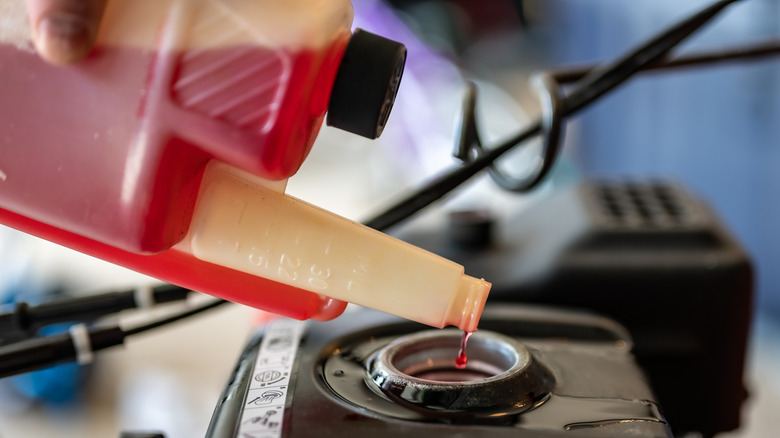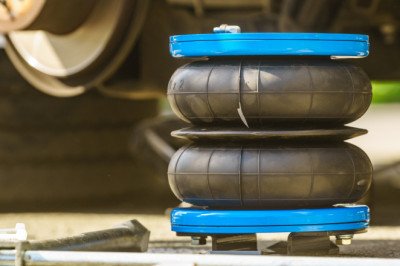
 Lost_in_the_Midwest/Shutterstock
Lost_in_the_Midwest/Shutterstock
A sad annual autumn ritual during my time in New England was putting my motorcycle away for the long winter. Unlike our Amber DaSilva, I'm not keen on riding in the cold and snow. An important part of this ritual involved adding fuel stabilizer to my gas tank, then going for one last short ride to get the treated fuel into my fuel lines, petcock, and carburetors (yes, I rode old bikes). This prevented the carbs, in particular, from gunking up during our six-month winters and not starting or running the following mud season.
I never suffered any ill effects from following this procedure. Across all the car and motorcycle groups and forums I follow, I have never read a documented case of engine damage or even starting problems as a result of using fuel stabilizer. They're not just for motorcycles, either. You can use them in any engine that remains stored for long periods of time, from rarely driven collector cars to simple Weedwackers and lawn mowers.
However, the question of whether fuel stabilizer is bad for your engine still remains. It has been fueled in part by a FortNine video comparing various fuel stabilizers to determine which one allegedly killed host Ryan F9's motorcycle. The point I think some people have missed from this video is not that fuel stabilizers in general are bad, but that some work better than others. We've recommended them before, and will recommend them again.
 FOTOGRIN/Shutterstock
FOTOGRIN/Shutterstock
Many are quick to blame ethanol for all the problems of modern gasoline, as well as modern society. It causes its fair share of issues, but not all of them. Gas can start to break down in 30 days or less. This can lead to varnish, a gummy substance left behind after gas deteriorates while sitting still. Long before fuel refiners started adding ethanol, varnish was clogging tiny carburetor jets in vehicles parked and stored for long periods of time. Even today, varnish can clog fuel injectors in the same way. One job of fuel stabilizer is to stop this chemical breakdown and prevent varnish from forming.
Evaporation and oxidation are other problems with gas that sits around for too long. Its ability to burn degrades over time when exposed to oxygen. Ethanol adds another set of issues. It is hygroscopic, which is a fancy way of saying it attracts water. Water in fuel is bad, especially when it sits at the bottom of the gas tank waiting to get sucked into the fuel pickup. A good fuel stabilizer helps prevent gas from absorbing water. Some also include alcohol to help the fuel burn more effectively, even if it has a little residual water.
Finally, this extra water and oxygen can cause metal components to rust. This is less of a problem now that many vehicles use plastic gas tanks, but it's still a concern in other metal components.
If fuel stabilizer is so good, then what are the problems? Not all products are what they seem. Looking at the FortNine video's test results, we see that Star Tron and Ipone absorbed more water than gasoline by itself. Ipone flamed out when the others helped gas burn better. Ipone and K100 froze when the others did not, including untreated gas, which is particularly concerning for those in the frozen North. When it came to preventing oxidation and rust, only K100 prevented it completely, while Star Tron and Seafoam performed worse than untreated gas. The specific product you choose should be the one most effective in preventing the problem you are trying to prevent.
While no fuel stabilizer is perfect, Sta-Bil showed the most consistent benefits and fewest drawbacks across all the tests in this video. It is also the product I've used for years with no problems and no trouble starting my motorcycle's engine each spring. I promise this post is not sponsored by Sta-Bil. It's just one of the products that came out on top in this comparison, and the one I've had good experience with.
Even better, however, is to fill your tank with ethanol-free gas before storage. This is easier said than done in some areas where ethanol-free gas isn't available, but a tank of the clean stuff plus the recommended dose of fuel stabilizer to prevent varnish will work best.















Facebook Conversations